Critical Thinking With Álvaro Castro-Castilla
In an age where traditional governance models are being reimagined through technology, Álvaro Castro-Castilla stands at the forefront of a fascinating intersection. As a Spanish polymath whose expertise spans numerous disciplines, he leads a team of innovative minds working on infrastructure to build the foundational technology for Network States – a concept that could reshape our thinking about governance and community organization in the digital age.
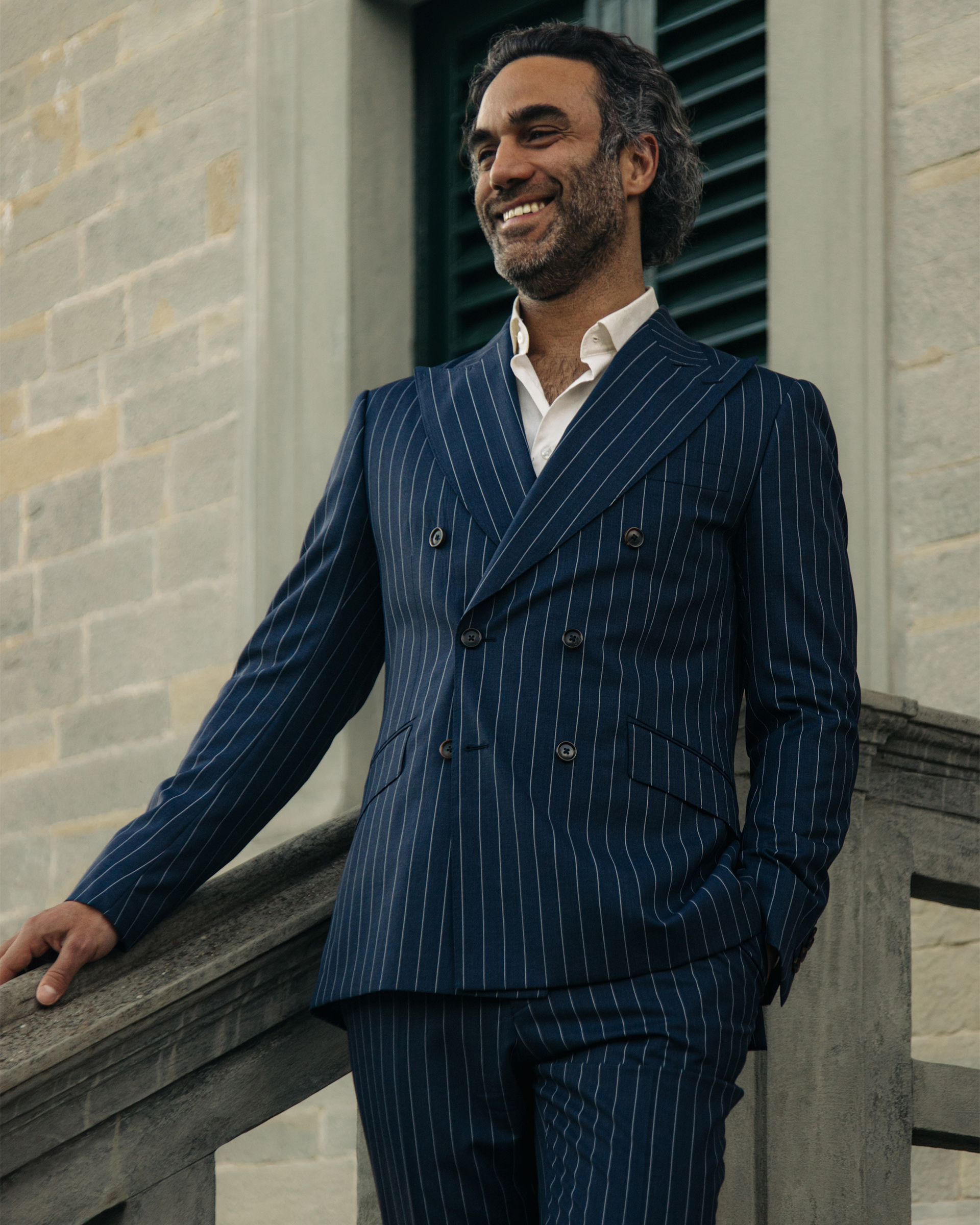
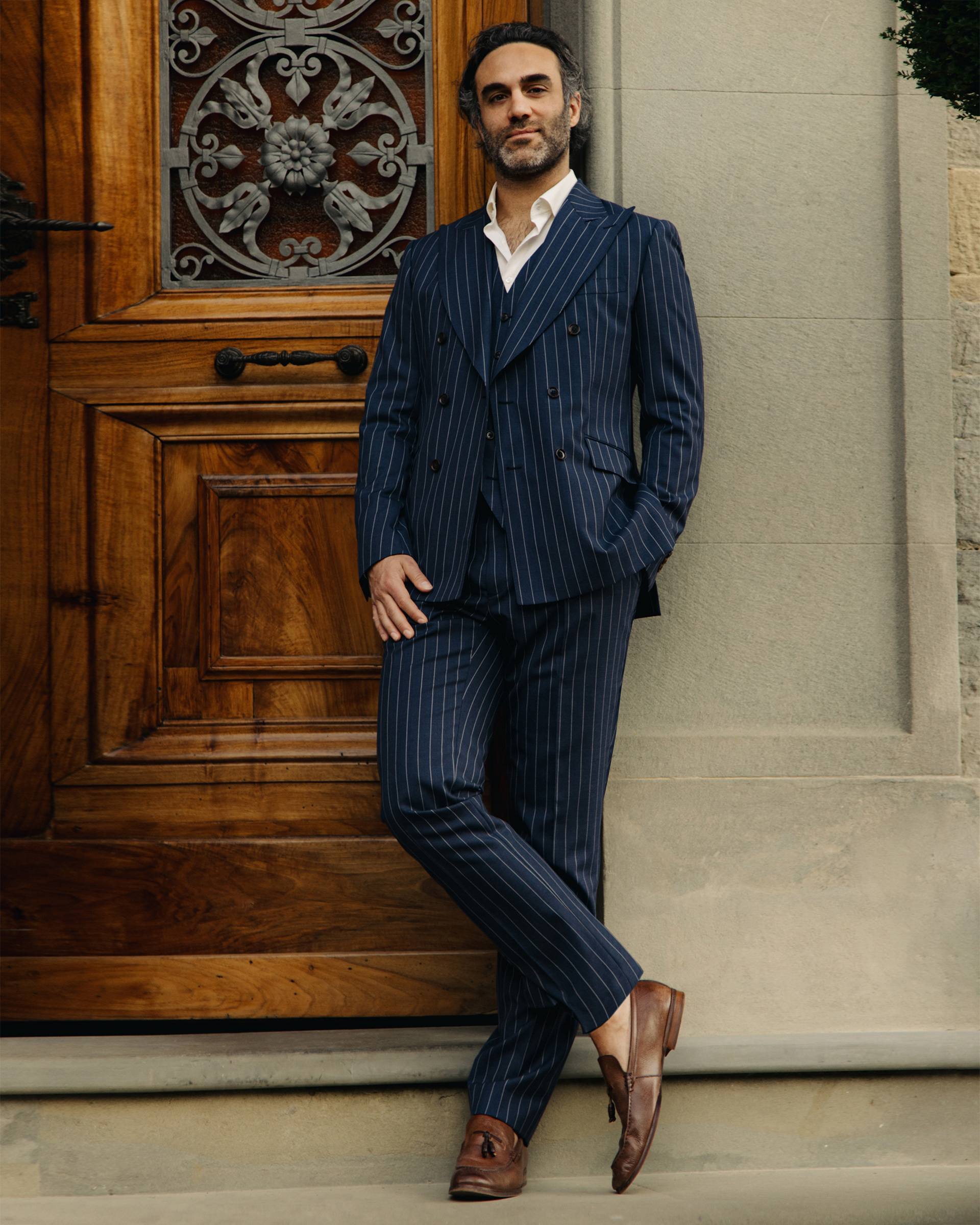
Álvaro, whenever we meet, I enjoy our conversations, and therefore, I am very grateful that you agreed to open yourself to our audience.
You have been visiting Tallinn and staying for extended periods. What initiatives or movements in Estonia do you believe are making significant strides towards a better society?
I’m not particularly attuned to Estonia’s prevailing social dynamics. Consider that I originate from a deeply fractured political landscape, where empathy appears to be in short supply, and I deliberately avoid the news.
That said, a few observations emerge. As an outsider, I am invariably made to feel welcome. I appreciate how Estonians can easily switch to English, even in groups where I’m the only person who doesn’t speak the language.
Another thing I notice is the entrepreneurial mindset, which is a result of history and the climate (cold and dark winters encourage a more industrious society than warm, sunny weather). This social energy is something I miss in other parts of Europe. It’s paired with ease of doing business and a smart taxation system that greatly simplifies accounting and encourages reinvestment. Unfortunately, this seems to have turned sour with the recently announced tax on retained profits. I think this breaks a strong social contract, and from here, the trend will only go downward—governments tend to love taxes more than good financial management, so the direction seems obvious. That shift from 0 to 2 is significant, introducing uncertainty and complexity. I’m now starting to look for alternatives to Estonia.

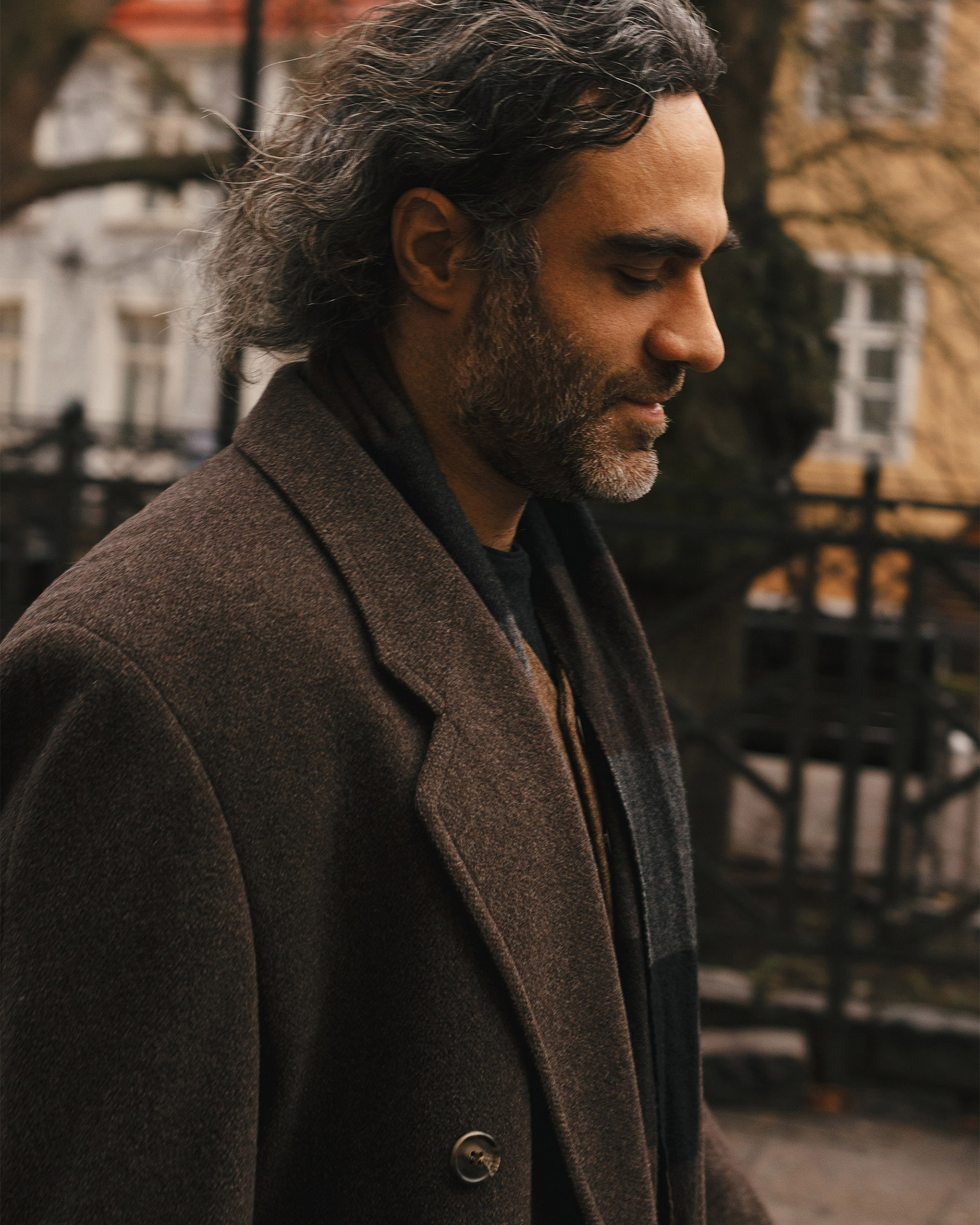
As an entrepreneur, I sadly agree – Estonia is implementing a tax policy that no longer supports a thriving business environment.
However, your insights on topics such as Crypto and Web3 are invaluable. Are there any innovative (AI) projects currently making a significant impact on society or something really promising?
I wish I knew much more than I know, but Crypto and AI are certainly some topics that fascinate me. However, the reality is that the crossover between crypto and AI has not yet produced any project I feel strongly about. There have been numerous attempts, but they have failed to gain any meaningful edge over the incumbents, such as OpenAI, Meta, and Google. This is worrisome for a technology of the potential that AI has. It’s too much power in the hands of very few people, all geographically located in California and, to a lesser extent, in London.
Then we have China, forming its own orbit. They have their very own worldview, strong political bias, and an agenda. Whether you agree with their policies or not, the dangers of surrendering a lot of power to a reduced group of individuals who are largely out of touch with reality in many aspects have never worked out well for humanity. No matter how virtuous those individuals or ideas are supposed to be. Controlling the future source of information yields too much power. But I digress.
“We are on the verge of many societal changes, and AI and crypto are at the center of it.”
How can AIxCrypto help us? It’s all about the power of decentralization. There are three main axes of control in AI:
- Data extraction. AI uses gargantuan amounts of data to produce its models (i.e., the “brains” we interact with when we use ChatGPT, for example). Currently, the primary way to improve models is to feed them with more and better-quality data. Gathering this data, adding privacy-preserving mechanisms, and storing/distributing it are problems in which decentralized protocols and cryptography can greatly help. This might be changing, though, with the new models that generate their own data and learn independently (this seems to be the most recent breakthrough of OpenAI).
- Model training. Model training refers to “teaching” the AI. For this purpose, we feed training algorithms with the data mentioned before. The possibilities of crypto at this point of control are among the most contentious topics. The combined capabilities of all idle processing power in the world greatly exceed that of the mega clusters of OpenAI/Meta/Google. However, it is unclear whether we can combine them by using decentralized protocols with incentivization. It’s a complex engineering task, made difficult by the challenge of efficiently communicating nodes far apart from each other. This is a significant disadvantage compared to classic training models used by the companies at the forefront. But if we can solve this, it will involve blockchain and crypto technology in one way or another. The outcome of this is openness and accessibility of the very tool that allows us to create new AIs.
- Model execution and agents. Lastly, we have ownership and execution of these models. Blockchains can provide an excellent substrate for this part of the equation: provable model execution, agents, swarms, and decentralized marketplaces are some of the most promising new directions. This is moving so fast that by the time of publishing this article, there will undoubtedly be exciting new directions that we haven’t thought of yet. For this to be possible, however, we depend on the availability of these models in the first place. This refers to the previous step (model training), but most importantly, it requires that all research is published.
Recently, Mark Zuckerberg announced his intention to keep working in an open way. But OpenAI (ironically) and Google don’t seem to follow suit. We will have to wait and see. The implications of this specific question are much more significant than just the question of crypto and AI; they extend to the economy, geopolitics, and beyond.
Besides all this, there is a lot of discussion on how AI can benefit crypto and vice versa. In other words, mutual synergy between the technologies but not necessarily merging. That is another interesting topic. For example, crypto has a higher chance of becoming the currency for AI agents, and blockchains provide the only way to prove provenance and originality in a world of superabundance of digital content. There is so much to be said in this direction that it is impossible to give a short answer here. We are on the verge of many societal changes, and AI and crypto are at the center of it. These two can work together in a variety of ways.

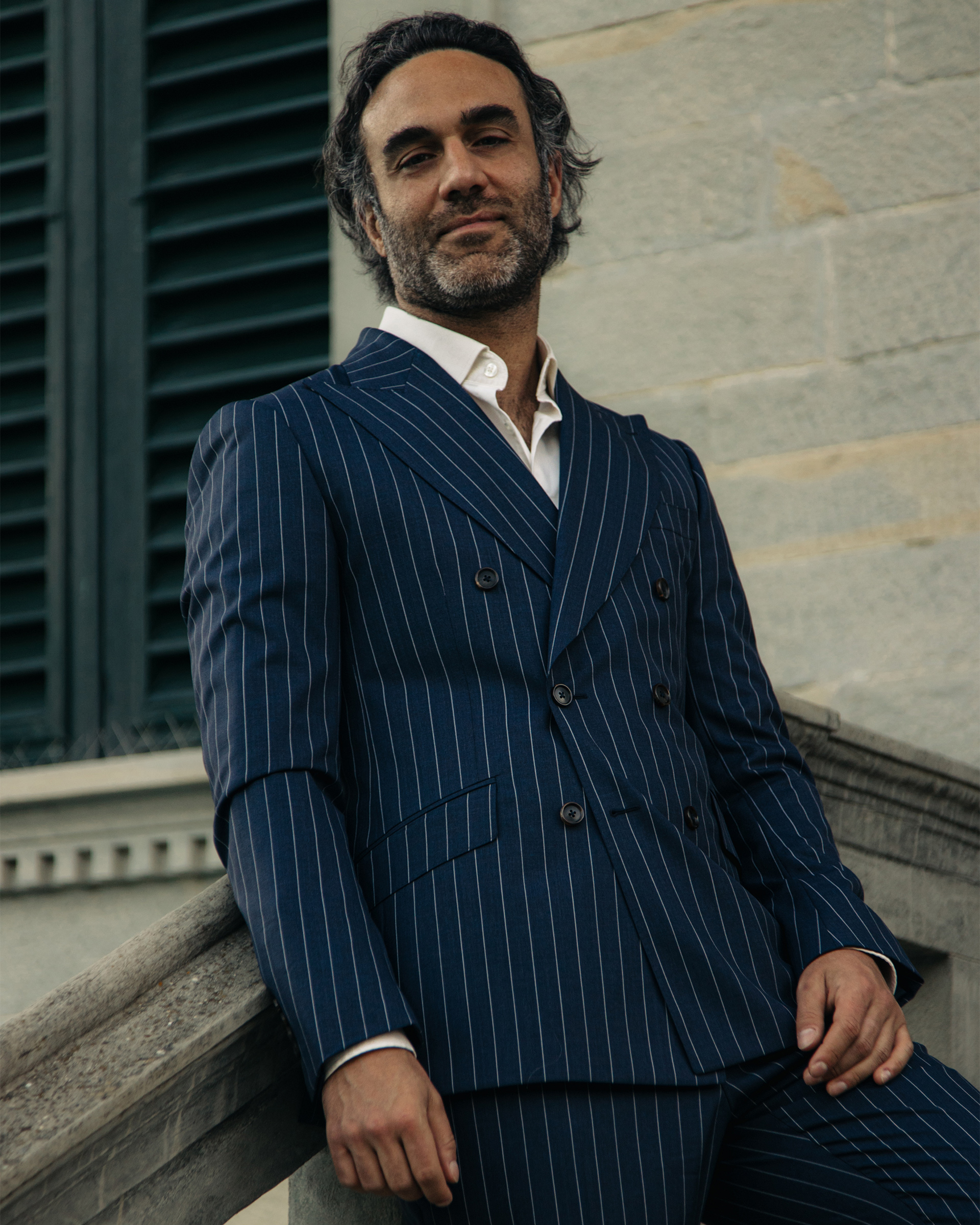
How do you envision cryptocurrencies transforming global economies in the next decade?
Bitcoin is “digital gold,” whereas Ethereum is the rails where Decentralized Finance (one in which anyone can be the bank) is built. Blockchains are the ultimate technology for widespread access to financial instruments, most gatekept by banks and the managerial class.
Cryptocurrencies are about the disintermediation of money and state. It is a change even larger than the separation of religion and state since the power of money is universal. Why would those with this power let go of it? A change like this will not be easy and will not happen without resistance from those who benefit from the status quo. It is impossible to predict what will happen. The approval of the ETFs (which did not happen without a struggle) indicates that we are at the phase in which attempts at controlling the technology will follow.
“Anything that those who control the current system don’t like will be deemed “technology for criminals,” but once they have control, they will call it “the future of finance.” The truth is that blockchains are the most powerful tool for decentralizing power ever invented.”
Unfortunately, there are many ways for them to co-opt cryptocurrencies and reduce their potential positive impact on the world. The most effective one has been to portray them as scams, which is very easy to do (they just need to create the scams themselves, let things go down, and then call for regulation to stifle innovation).
How do I envision cryptocurrencies in a decade? I think both Bitcoin and Ethereum will at least partly fall prey to the ruling class, but they might not be able to control them fully. This is part of what the ETFs are attempting to do: concentrating ownership under the management of traditional asset managers and centralizing ownership under entities sponsored by the regime. On the bright side, even in this scenario, they could serve as Trojan horses for projects built on top or better future incarnations of these technologies. The narrative will remain, and anything that those who control the current system don’t like will be deemed “technology for criminals,” but once they have control, they will call it “the future of finance.” It is happening already and will only continue.
The truth is that blockchains are the most powerful tool for decentralizing power ever invented. They allow for full transparency of public funds, selective privacy of personal funds, and the coordination of vast amounts of people in a predetermined and objective way. If used right, blockchains are a tool for freedom. They can promote strict accountability for those in power, and most importantly, they can be designed to resist capture by any particular group.
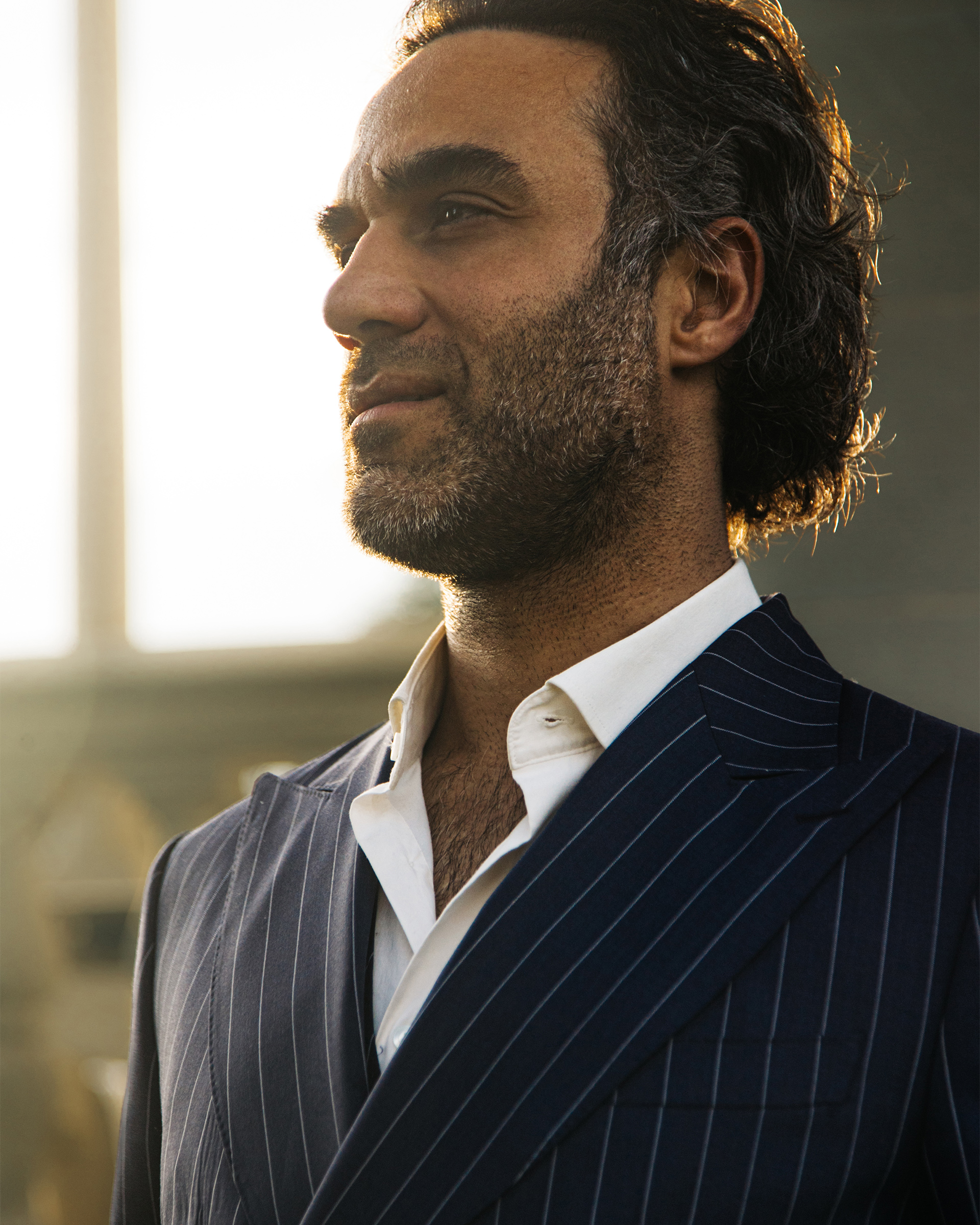

On a different note – you’ve been wearing GUILD for many years now. How did you discover us, and what are your favorite items? How do GUILD clothes make you feel?
It was through a common friend. I remember very precisely how I asked him about the clothes he was wearing. I noticed the quality. Interestingly, it was a jacket with a style rather uncommon for Guild (a bit more street style than usual). But the material stood out to me, and I asked. Then I visited the store and realized I could make my wish come true: wear interesting vests without a suit. Vests with a sense of History in them. A modern and personal piece with echoes of the past. From vests, then I started trying other pieces and… I couldn’t resist.
Guild clothes make me feel rooted. On the one hand, there is this quality of permanence. If I take care of it, I’m acquiring something that will accompany me for life. An item in which time will create a mark that will add to its beauty, not subtract. This is something exceptionally rare in the current fast-fashion and consumerist society.
On the other hand, Guild produces pieces of timeless Style. To me, that means that they are infused with the aesthetics of the past and the future. That’s what I identify myself most with.
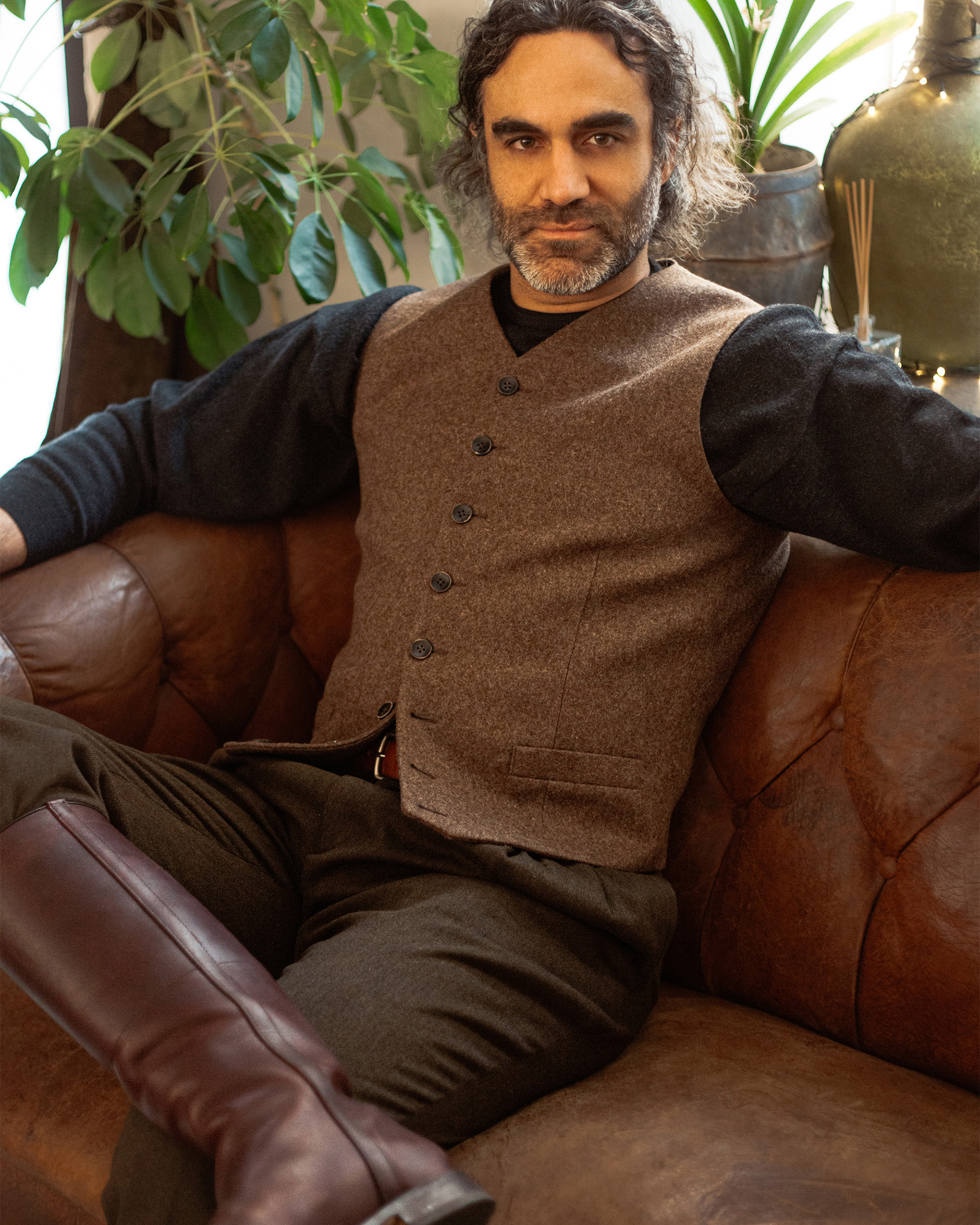

You’re also a great vintage lover. If you could bring back any fashion trend, what would it be?
The most elegant men who ever walked the Earth were during the end of the XIX and early XX centuries. Of course, I admire the rawness of ancient cultures as well.
In general, I think we have moved from “elegant” to “cool” as a society, and I would love to see a world that prefers the former with a touch of the latter. I aspire to go in that direction, but it requires conscious intention and time. Mixing GUILD with vintage pieces is my favorite way of doing it. But, of course, none of this would have been possible if Maarja [Pabunen, his companion in life and the founder of digital atelier Von Voxel – editor’s note] had not introduced me to the world of vintage.
“Guild clothes make me feel rooted. This is something exceptionally rare in the current fast-fashion and consumerist society.”
You also have a passion for history. Any historical lessons to learn from to create a more humane world today?
I could say the usual “empathy, solidarity, equality,” and all that. But I do not believe that this is the way. The smartest way would be one that acknowledges our worst and best qualities realistically. We need to understand humans and work with what we truly are. Ironically, I believe the ancient peoples had this figured out better than us in many cases. That is not to say that more empathy, solidarity, and equality are not good. However, when enforcing these is the path chosen, the social structure that emerges is far weaker.
The following is my most significant defense of conservative ideologies: what has been built through time has a much higher chance of embodying the collective knowledge accumulated over time, much of which cannot be easily grasped, and much of it about our darker and hidden sides as humans. Some things are as they are because we have figured it out in the past, but we have already forgotten the reasons. Humanity has learned in the expensive school of experience, yet we are too quick to forget.

I look forward to humanity’s rapid advancement—just in a different way than those who call themselves “progressives” in the West these days. I’m particularly curious about Effective Accelerationionism as an optimistic stance toward the upcoming challenges. But once again, I digress. Here are my historical lessons to make the world more humane:
- Make cities beautiful again.
- Post-war utilitarian architecture and urbanism in the West are atrocious. Our environment represents and influences the collective psyche.
- We should honor our previous generations and stop believing they were stupider than us or didn’t have their reasons to do what they did in the name of virtue. In some ways, they had more moral foundations than we do. What we consider moral or virtuous today will likely be seen very differently by future humans. This time will not be different.
- Never trust the common narratives of History. There are multiple Histories, and each one of them is told with a purpose. Controlling the narrative of History is a powerful way to control a society. I find alternative explanations of History (such as the loser side) fascinating and very enlightening.
- Exercise critical thinking yourself and hope to inspire it in those around you. When put in context, critical thinking is as equally absent now as it was in the Middle Ages.
- There have always been and will be social hierarchies, whether hard, structured and in plain sight or the complete opposite. Flat hierarchies are just covert hierarchies with a soft form of power. The objective of those on top is always to remain there. The struggle of those underneath is always to change that, whether by placing themselves there or changing the nature of the hierarchy. This is human nature.
“Critical thinking is as equally absent now as it was in the Middle Ages.”
History is His Story. Written by the winners, much of what really happened is lost – though accessible through tapping into collective (un)consciousness.
If you could have any historical figure over for dinner, who would it be, and what would you serve?
It is also Her/Their Story, as there is no escape from this new version in media, entertainment, arts, and culture in general. We need to be aware of the new bias. As I said before, every History is told with a purpose.
To your question, I would like to pick Aristotle, Leonardo Da Vinci, Nikola Tesla, and Benjamin Franklin—a dinner of polymaths from different eras.
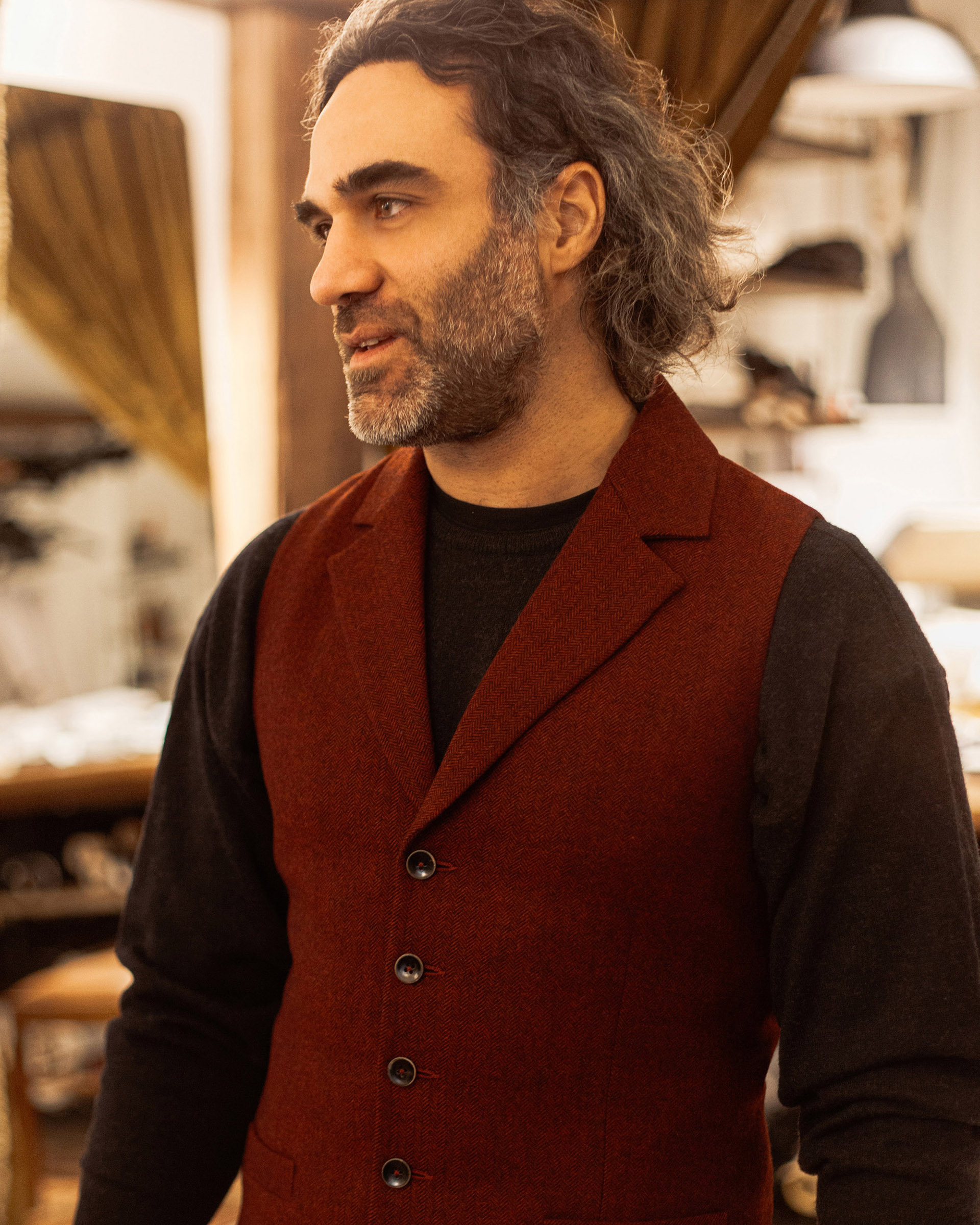

Now, on a completely different note – in your opinion, how can modern feminism and traditional femininity coexist harmoniously? We’ve had fascinating discussions with you on the topic, and your unique perspective has the potential to broaden horizons.
While traditional feminism was supposedly concerned with elevating women, current feminism seems at times more concerned with directly attacking men (portraying them as the embodiment of all that is evil in the world) and promoting social engineering far beyond “equal rights.” I am not an expert; I can only talk from observation. I am sure someone well-versed in feminist literature can pinpoint the differences and comment on the tensions between third and fourth-wave feminism. Academic and philosophical differences aside, I can only comment on what I observe from my limited point of view.
At the moment, I decided to pay less and less attention to this topic, as my (anecdotal) experience has shown me very little interest on the side of modern feminists to have any discussion in which I would not agree completely with them. And I do not agree with many of their assumptions. For example, it’s evident and factual that women in certain countries (such as Spain) have more legal rights than men (while in many countries outside the West, they have undeniably less). Progress will be difficult as long as we cannot be rational and objective about these things, and conversations around the topic come already impregnated with the “with me or against me” ethos.
“I’ll add one note at the risk of sounding conspiracist. I do not think that feminism’s underlying current is truly about women, just like I do not think that Wokeness and the Far Left are about social justice. If it were, women would actually be happier now than they were years ago.”
With all this said, there is hope in some places. Estonian society is much healthier in this regard than, for example, Spain or the West/East coasts of the USA. There is much less women vs. men rhetoric in this land, which I truly appreciate. I encounter many more empowered women here who manage to remain feminine. That combination is becoming rare in the West.
I think the truth that modern feminism struggles with is that men and women are not the same. A truly empowering ethos should be about elevating the best qualities of women and enshrining them as they deserve. Instead, the ideology that has taken over says, “Women can do everything men can.” I do not think so. We are two different beings. Just like men cannot do everything that women can. The day we admit this, we can start discussing how to build a beneficial society for both, not just for men and not just for women.
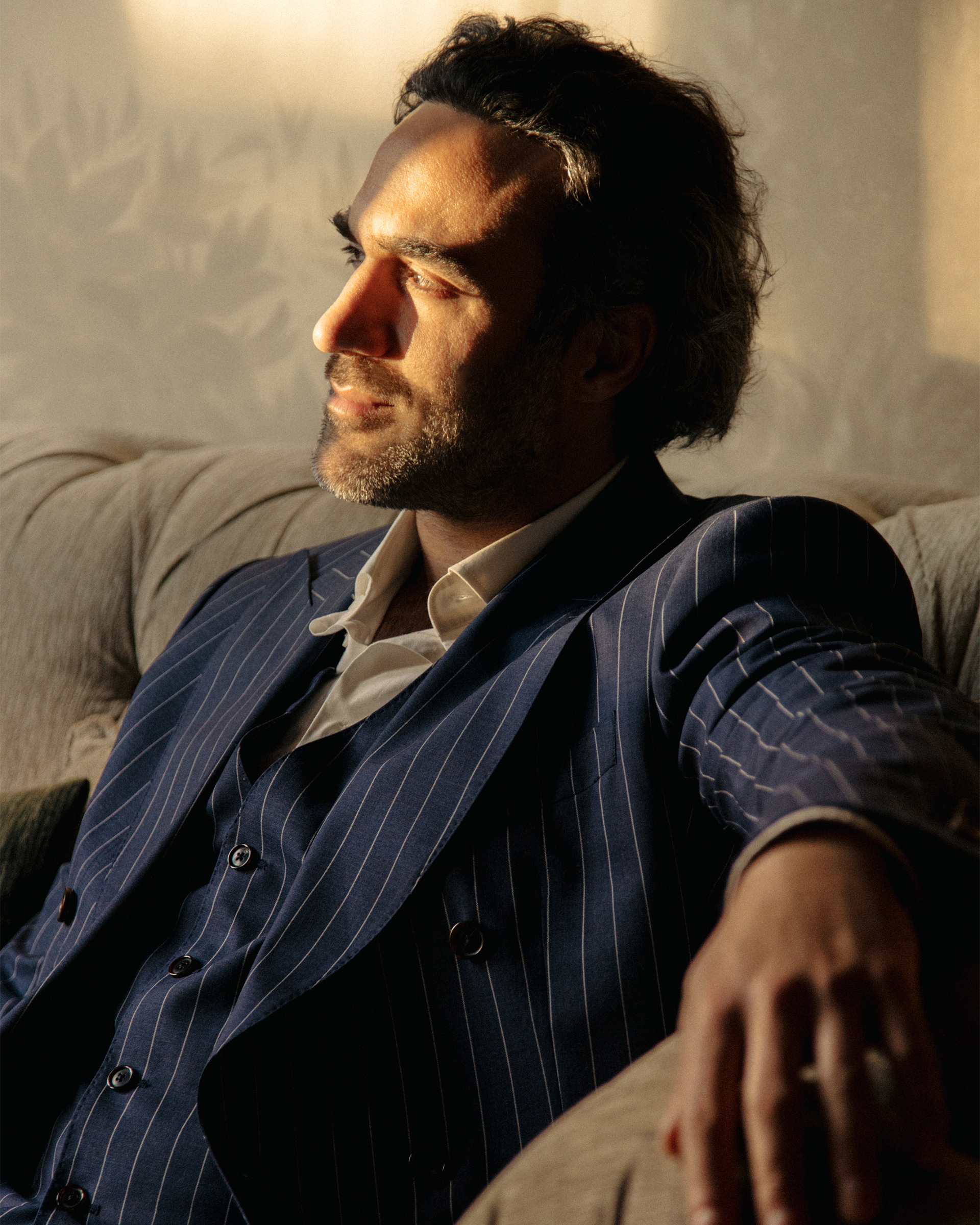
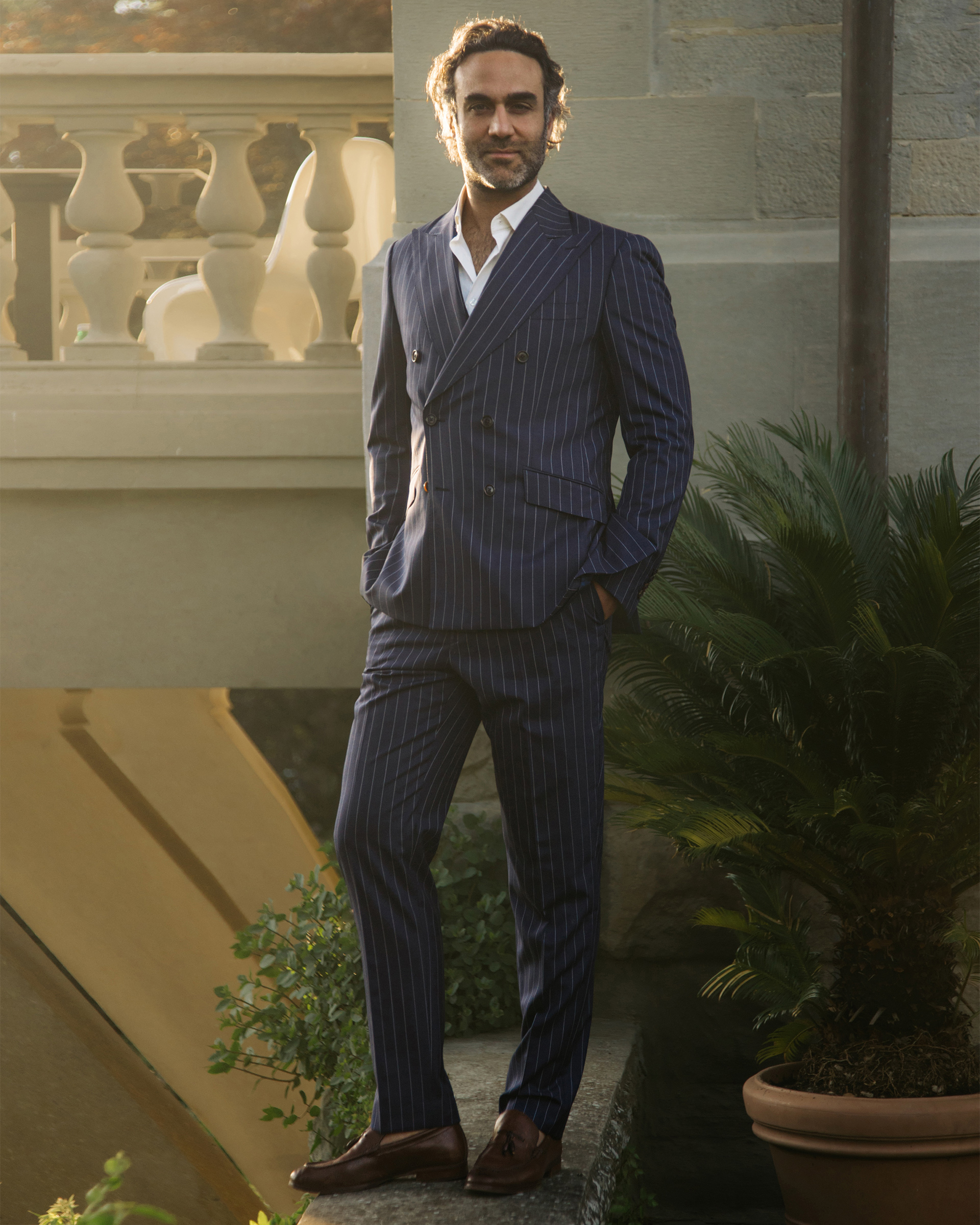
To finalize, I’ll add one note at the risk of sounding conspiracist. I do not think that feminism’s underlying current is truly about women, just like I do not think that Wokeness and the Far Left are about social justice. If it were, women would actually be happier now than they were years ago.
These ideas are pushed by the media. You must look at who owns the media and benefits from these cultural wars the most. Just like in conventional wars, we can hardly see the big picture. In democracy, we are told things with the sole purpose to direct our thinking as a collective, for a purpose not defined by the collective itself.
As a woman who stands for equality and the mutual empowerment of both the masculine and the feminine, I couldn’t agree more. The pay gap in specific fields is real and should be addressed. But I, too, experience modern-day feminism as a war on masculinity. Until women work on their almost generational anger, we will continue failing to see it and realize that it’s also a war on Divine Union.
Also, it’s not a secret that stay-at-home women couldn’t be taxed, and it was the Rockefellers who started funding feminist campaigns. As a consequence, children would then be separated from their parents and educated in schools to be indoctrinated by the state. And those who cheer for the right to vote – really? “If voting changed anything, they’d make it illegal.”
I couldn’t agree more about this. Everything you mention here is a fact and the true reason for things as they are. It was the Rockefellers who attempted to apply Malthusian techniques of population control to Catholics and Blacks, who were deemed undesirable by the WASP elites, who, given their economic emancipation, had a lot of time to explore sexuality and embraced the use of contraception. They realized that the obvious result of this would be a decrease in the white-protestant Anglo-Saxon population, which in democracy directly means losing power. Others also saw the opportunity to push this harder, like the Zionists, but that’s a separate topic and more controversial because of recency bias and masterful political protection. Things have evolved since into the irrational abomination that American politics seems from the outside.
Now, a question I like to ask – is there a book that changed your life?
I am going for a book in line with the previous response in hopes that it inspires someone to read it: The Way of the Superior Man by David Deida. Recommended for both men and women (though written primarily for men), it is a book filled with simple but powerful teachings about men and female energies. It’s beautiful and necessary.
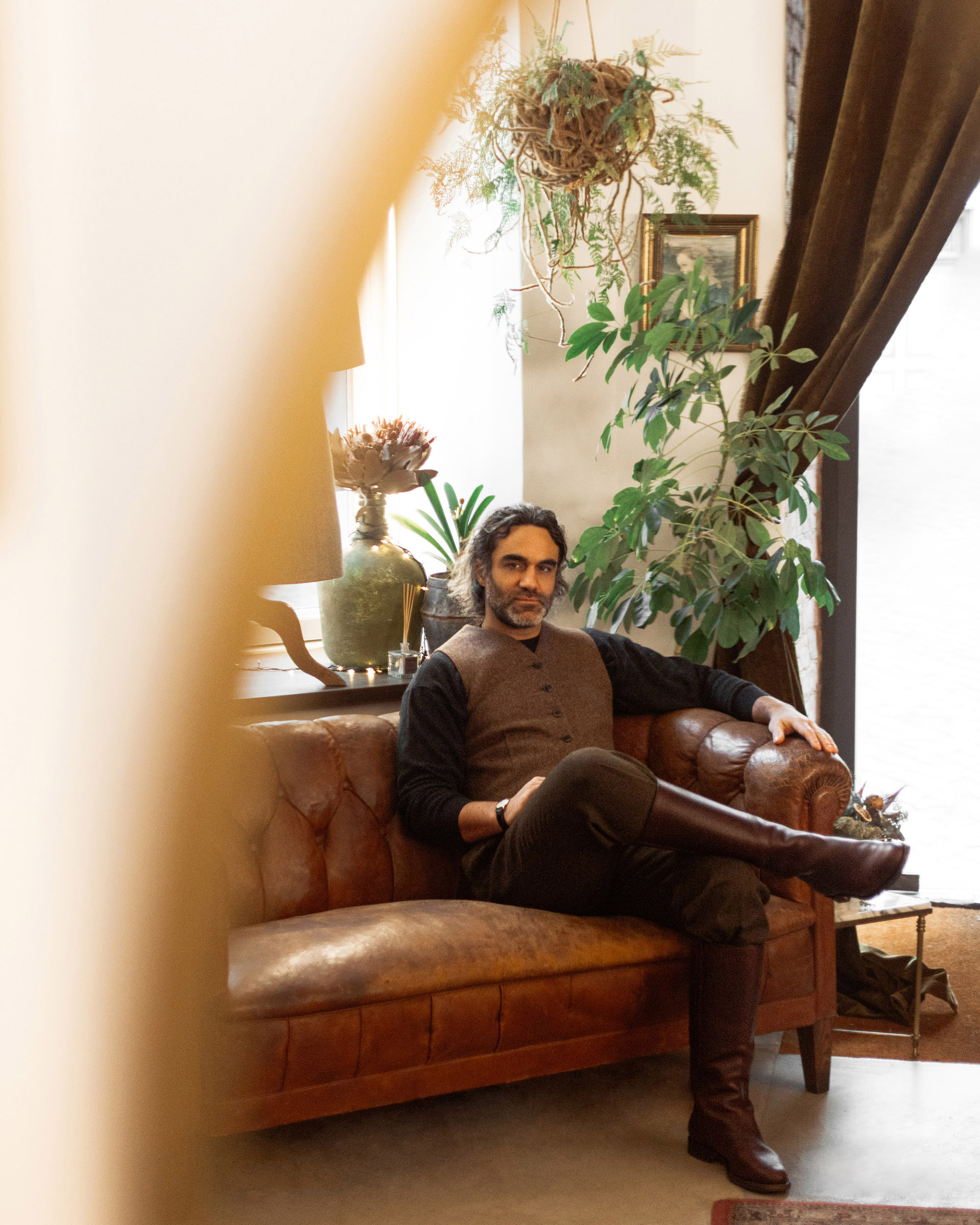
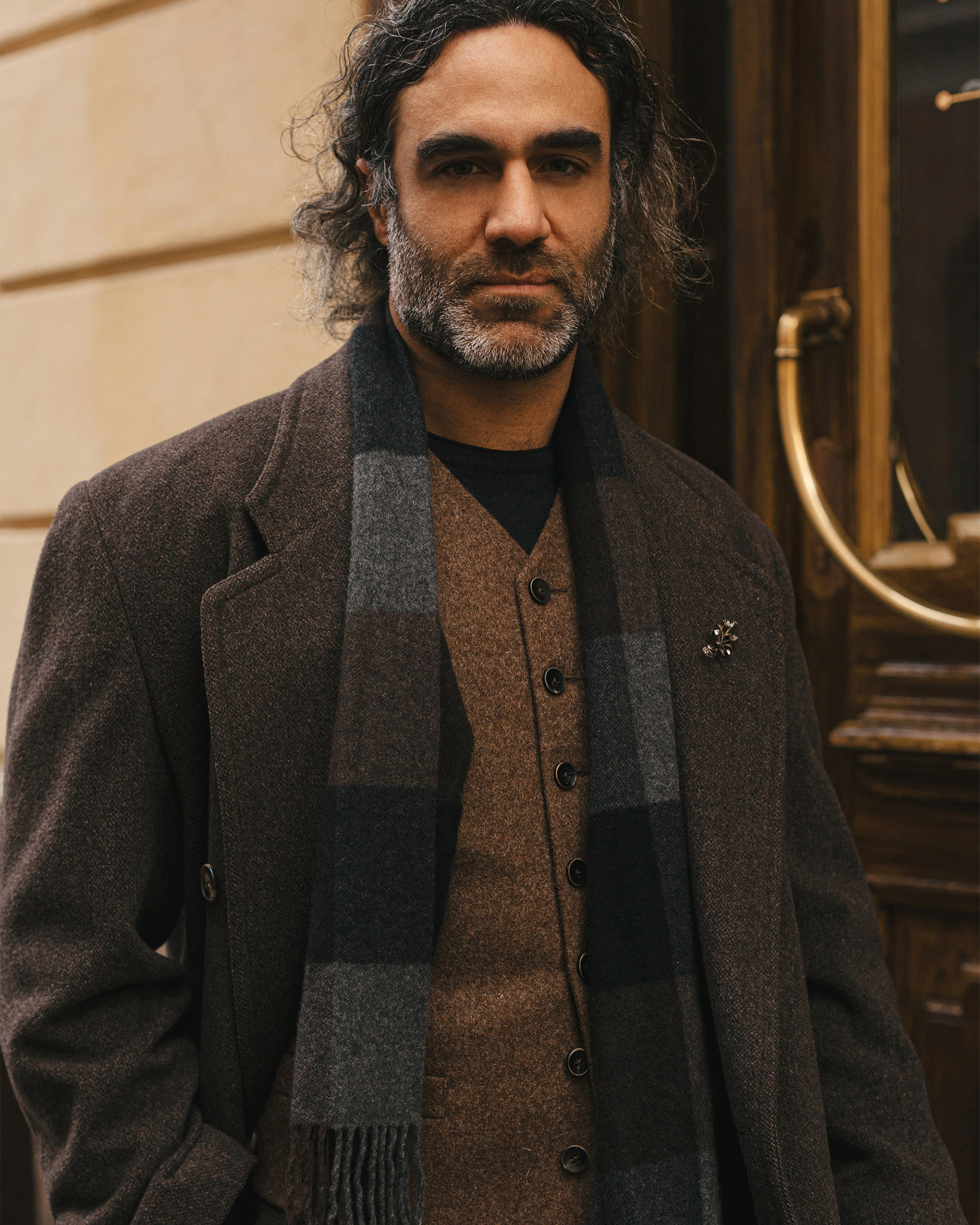
I’ve read that, and I loved it! What about three songs that sound like you?
Maurice Ravel’s Piano Concerto for the Left Hand was written for Paul Wittgenstein, who lost his right hand in WWI. It features Ravel’s surprising and often playful sounds alongside some of the most beautiful melodic solos ever written.
Fantasie in F Minor for 4 hands, Franz Schubert. The heart-melting exquisite melodies, intertwined as the dance of four hands on the keyboard, constantly transition from happy to sad to emboldened. It is an unparalleled story of emotions.
Trance Anthems For a Sunken Generation, by 36. It is made of sounds that dissolve time and give you a glimpse of infinity. Some of the best electronic/ambient/drone that I’ve found in a very long time.
Bonus (I would continue with a long list, though) – Violin Sonata no. 1 in G Minor BWV 1001, Johann Sebastian Bach. Especially Hilary Hahn’s rendition. She truly paints Bach under a new light, never mechanical and always full of colors.
What made you YOU?
I have tried to do very different things and have always been moved by curiosity. I’m curious about the sciences, the arts, engineering, and other, much more mundane things.
What is the best advice you’ve been given?
Just do whatever you want and figure out things along the way.
